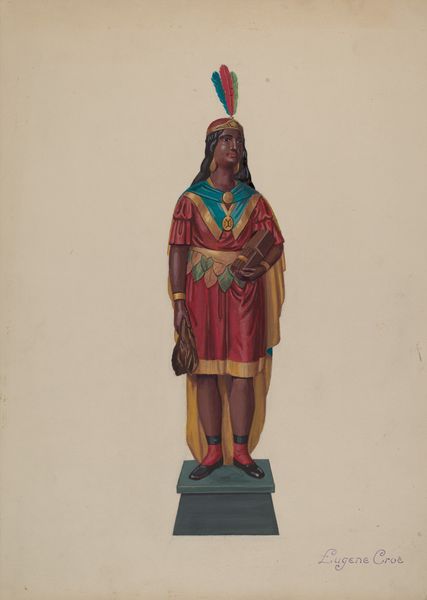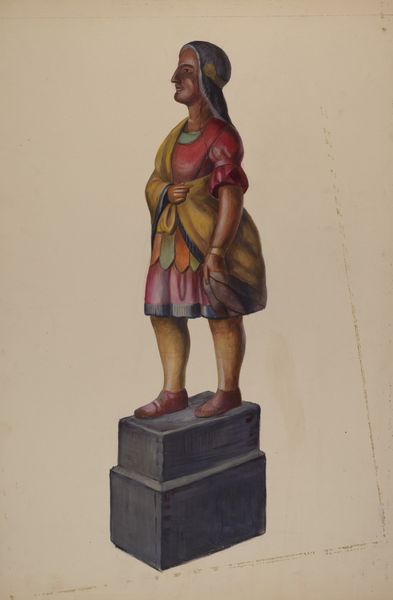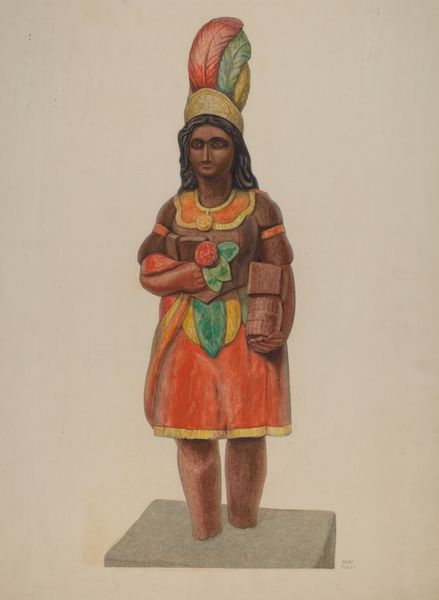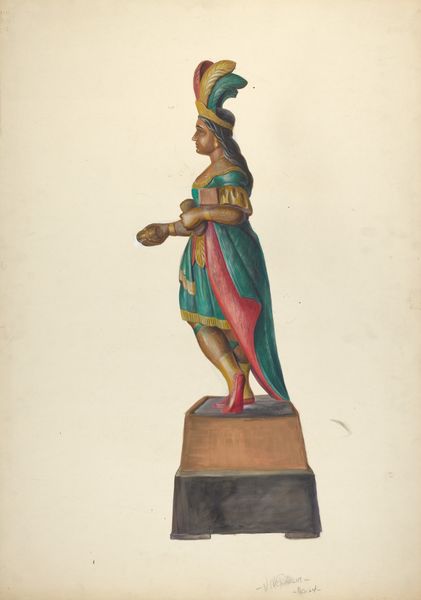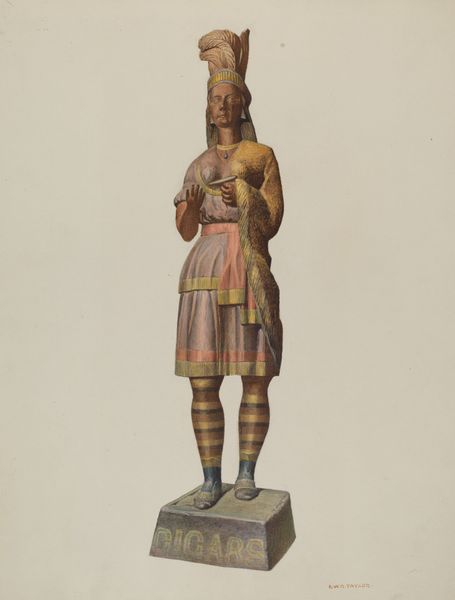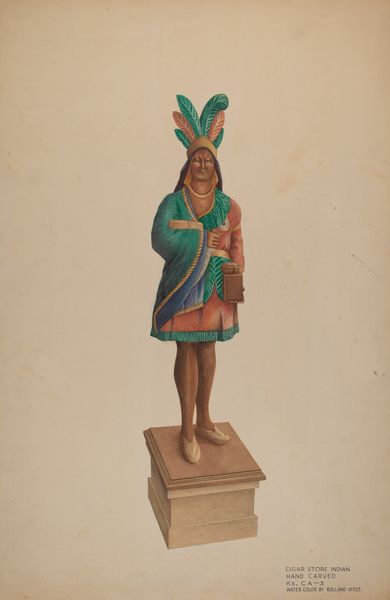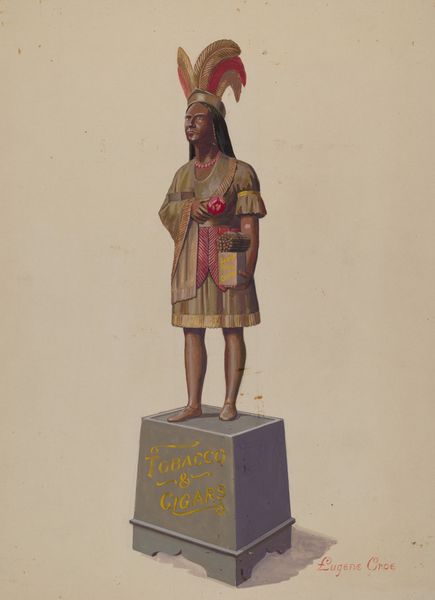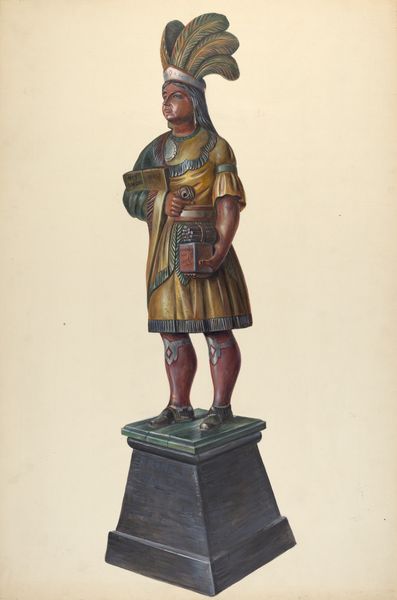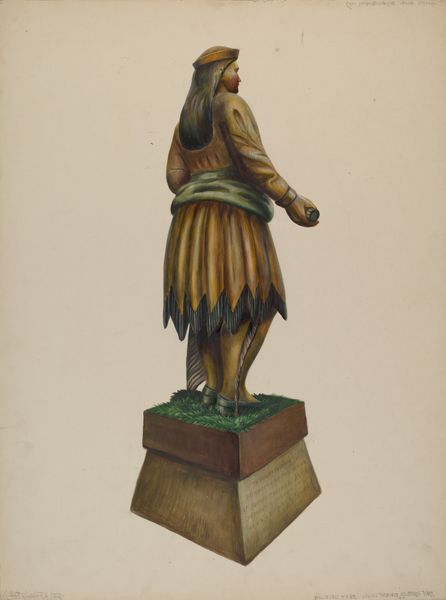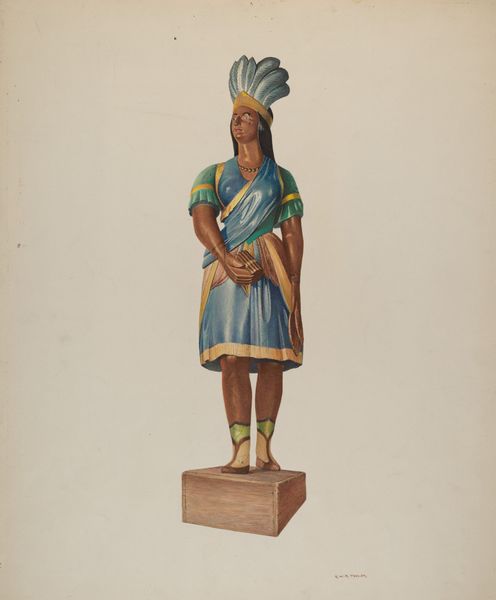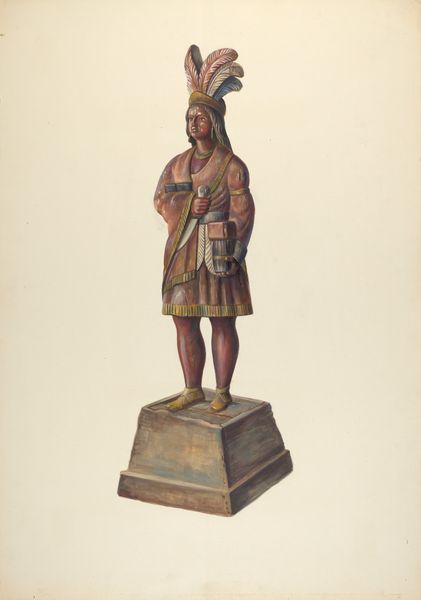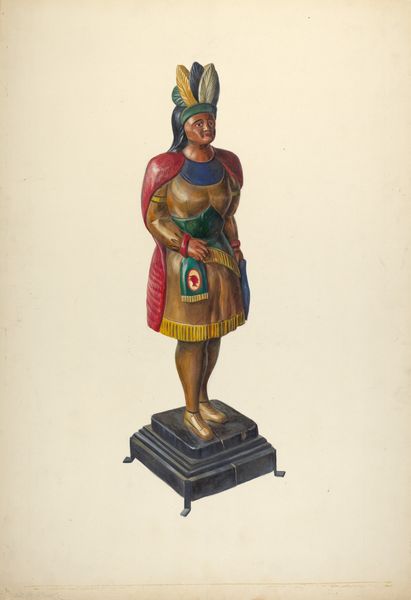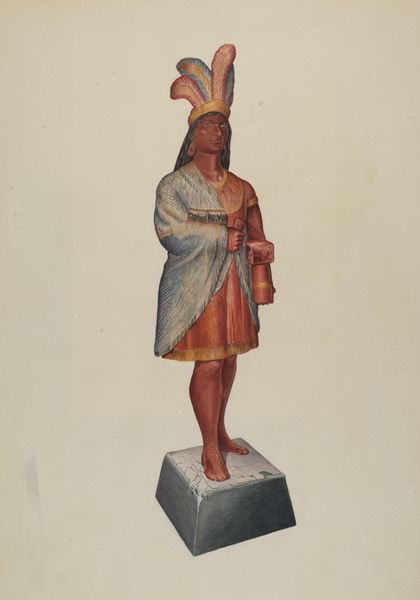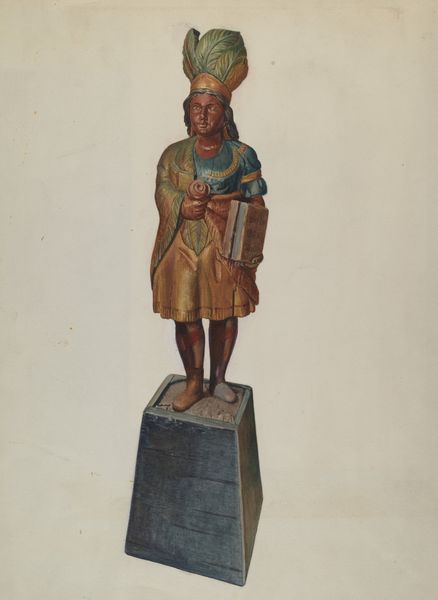
painting
#
portrait
#
painting
#
figuration
#
watercolour illustration
Dimensions: overall: 35.9 x 24.7 cm (14 1/8 x 9 3/4 in.)
Copyright: National Gallery of Art: CC0 1.0
Editor: Eugene Croe's watercolor drawing, "Cigar Store Indian," created between 1935 and 1942, presents a dignified figure. But there's also something unsettling about it, knowing the history behind these statues. What deeper readings are available to us in this piece? Curator: It's essential to approach this image critically, recognizing its complex layers of representation. While seemingly a straightforward portrait, it evokes the painful history of the appropriation and commodification of Indigenous cultures in America. The "Cigar Store Indian" became a widely circulated image that essentialized, commercialized and marketed Indigenous stereotypes. Editor: So, it’s not just a portrait of a person, but of a symbol, of a stereotype? Curator: Exactly. Croe's rendering, likely intended as an exercise in realism or perhaps even nostalgia, inadvertently engages with a long history of misrepresentation. It reflects a period when these figures were commonplace, normalized even, within the American landscape. Ask yourself, who does this image serve? Who profits from its circulation, both then and now? Editor: That really shifts my perspective. I was initially focused on the artistic technique, but now I see it as a document reflecting harmful power dynamics. Curator: Indeed. This work invites a broader conversation about the legacy of colonialism and its ongoing impact on Indigenous communities, How do you think this type of visual vocabulary affects us today? Editor: It's a potent reminder that images are never neutral; they carry historical weight and can perpetuate harmful stereotypes, whether intentionally or not. Curator: Precisely. Engaging with such images requires constant vigilance and a commitment to deconstructing the systems of oppression they often represent.
Comments
No comments
Be the first to comment and join the conversation on the ultimate creative platform.
